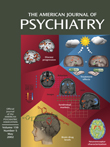Light Therapy, Obesity, and Night-Eating Syndrome
Ms. A, a 51-year-old overweight woman (body mass index=31.2) was seen as an outpatient for the worsening of depressive symptoms over 1 month, despite 2 years of maintenance treatment with paroxetine at a constant dose (40 mg/day). A thorough psychiatric examination by a senior psychiatrist and a record of food consumption (energy and macronutriment content) revealed the following:1. Nonseasonal major depressive disorder, recurrent episode, moderate, with partial remission between episodes (DSM-IV criteria). Severity was assessed with the Structured Interview Guide for the Hamilton Depression Rating Scale, Seasonal Affective Disorders Version (4) (the usual 21 items of the Hamilton Depression Rating Scale plus eight items assessing atypical symptoms) and with the Beck Depression Inventory (13-item version). Initial scores on the Hamilton scale were 18 on the depression scale and 12 on the scale for atypical symptoms. Ms. A’s Beck Depression Inventory score was 12.2. Night-eating syndrome, according to the provisional criteria for night-eating syndrome (2): morning anorexia and evening hyperphagia, in which at least 50% of daily energy intake is consumed after the last evening meal (62% after 8:00 p.m.); awakenings at least once a night (at midnight and 3:00 a.m. nightly); and consumption of snacks during awakenings (these snacks were 67.8% carbohydrate and had a carbohydrate-to-protein ratio of 6:1) in order to restore disrupted sleep. These criteria persisted for at least 3 months and were not considered to be side effects of paroxetine treatment.Bright-light therapy was added to ongoing treatment (paroxetine, 40 mg/day). After 14 daily morning sessions of 10,000-lux white light for 30 minutes, Ms. A no longer fulfilled the DSM-IV criteria for depression, and her scores were significantly lower on the Hamilton scale (depression score=7, atypical symptom score=5) and Beck Depression Inventory (score=5). She no long met the criteria for night-eating syndrome.One month later, all of Ms. A’s previous night-eating symptoms had returned. She was not depressed (DSM-IV criteria), and her severity scores remained low: depression score=6, atypical symptom score=4, Beck Depression Inventory score=5. Another 12 morning sessions with light therapy completely suppressed her night-eating symptoms.
References
Information & Authors
Information
Published In
History
Authors
Metrics & Citations
Metrics
Citations
Export Citations
If you have the appropriate software installed, you can download article citation data to the citation manager of your choice. Simply select your manager software from the list below and click Download.
For more information or tips please see 'Downloading to a citation manager' in the Help menu.
View Options
View options
PDF/EPUB
View PDF/EPUBGet Access
Login options
Already a subscriber? Access your subscription through your login credentials or your institution for full access to this article.
Personal login Institutional Login Open Athens loginNot a subscriber?
PsychiatryOnline subscription options offer access to the DSM-5-TR® library, books, journals, CME, and patient resources. This all-in-one virtual library provides psychiatrists and mental health professionals with key resources for diagnosis, treatment, research, and professional development.
Need more help? PsychiatryOnline Customer Service may be reached by emailing [email protected] or by calling 800-368-5777 (in the U.S.) or 703-907-7322 (outside the U.S.).

